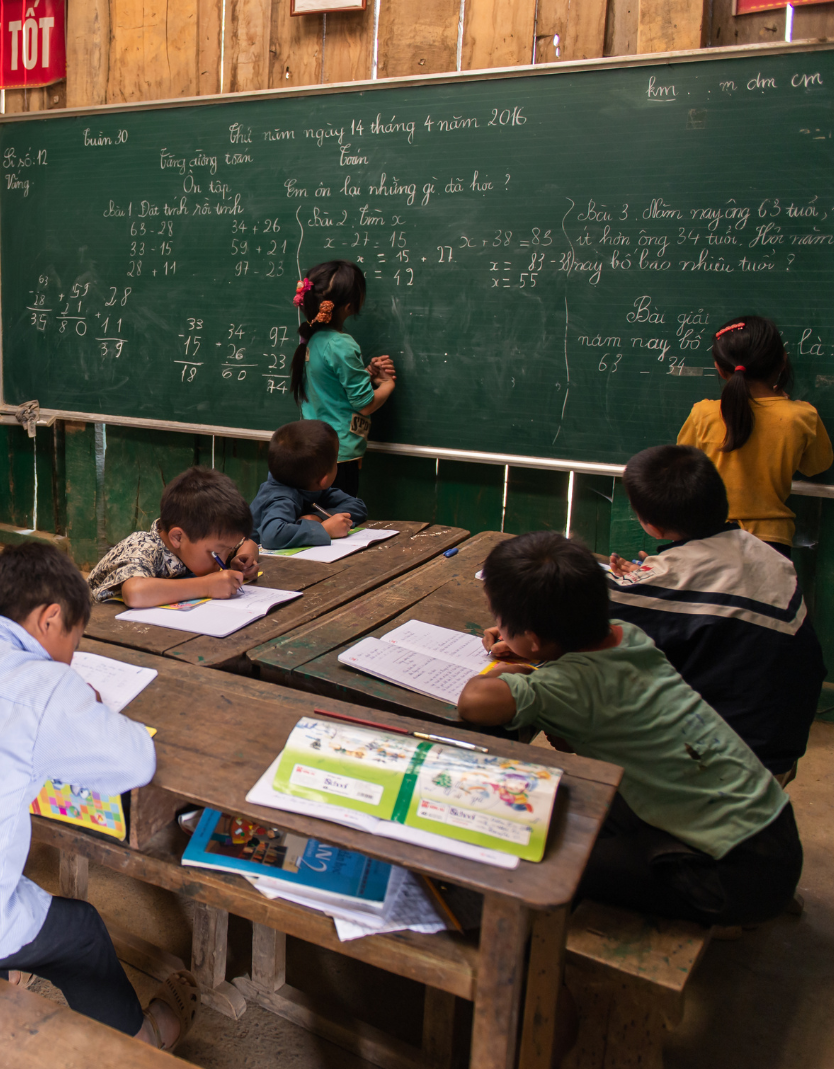The Disrupting Harm initiative is a multi-country research project aimed at better understanding the context, threats and children’s perspectives of online child sexual exploitation and abuse across 13 countries in Eastern and Southern Africa and Southeast Asia. Funded by the Global Partnership to End Violence Against Children, through its Safe Online initiative, this large-scale research project draws on the expertise of ECPAT International, INTERPOL, UNICEF Office of Research – Innocenti and their networks of partners.
The following research activities were conducted as part of this report:


The Household survey in Viet Nam showed that 89% of children surveyed between 12-17-years-old are internet users, with the majority using the internet daily to watch videos, use social media, and to do school work.
While most of the children exhibited some knowledge of online safety skills, only 36% reported that they had received information on how to be safe online.
Based on the household survey, an estimated 1% of internet-using children surveyed in Viet Nam were subjected to clear instances of online sexual exploitation and abuse in the past year:
Most children shared that this happened on social media platforms—namely Facebook, TikTok, YouTube, Zalo, and Instagram.
Because the survey only included internet users and those who live at home, more vulnerable child populations—such as children in street situations—were not included in the study. Research has shown that vulnerable communities are at greater risk of sexual exploitation and abuse, which means that the number of cases in Viet Nam is likely higher than estimated.

Nearly half of children who reported experiencing online sexual exploitation and abuse did not disclose the incidents to anyone. Fear of getting in trouble, not knowing whom to tell, and feeling that the crime was not serious enough, were some reasons for their reluctance to disclose. When they did disclose, this was more likely to a friend, rather than their caregivers or formal reporting mechanisms such as helplines or the police.
Children that have, or may have, been subjected to online sexual exploitation and abuse typically do not tell anyone what happened, or only tell a friend – if they do.
~ frontline support worker

A National Call Centre for Child Protection was established to receive and process information about acts of child abuse. The helpline is a free-of-charge service that operates on a 24/7 basis, offering legal advice for cases of child sexual abuse and trafficking.
Two specialised police units have also been set up to investigate online and offline child sexual exploitation and abuse cases. However, it was reported that operational resources, as well as capacity and tools for detecting and investigating cases are insufficient.
The criminal justice framework of Viet Nam outlines important safeguards to minimise re-traumatisation for child victims of online child sexual exploitation and abuse, including child-friendly interview methods, privacy protection, and right to legal assistance.
As part of accessing justice, victims also need to be able to reach services that help with their recovery. Social work centres and child advisory officers are being established in some Vietnamese provinces, providing counselling services for children who are at risk of, or have experienced any form of abuse or exploitation.
However, important legislation, polices and standards are lacking in Viet Nam—specifically, the legal framework related to online child sexual exploitation and abuse.

Data from the report suggests that more public awareness about online safety is essential for both children and caregivers. Investing in more resources and training programs to strengthen Viet Nam’s national response to online child sexual exploitation and abuse is also needed.

Some recommendations outlined in this report include:
Read the full report in English
About Disrupting Harm, our research and our partners
Comment, like and share to help us get the word out! #DisruptingHarm
Twitter | Facebook | Instagram | LinkedIn